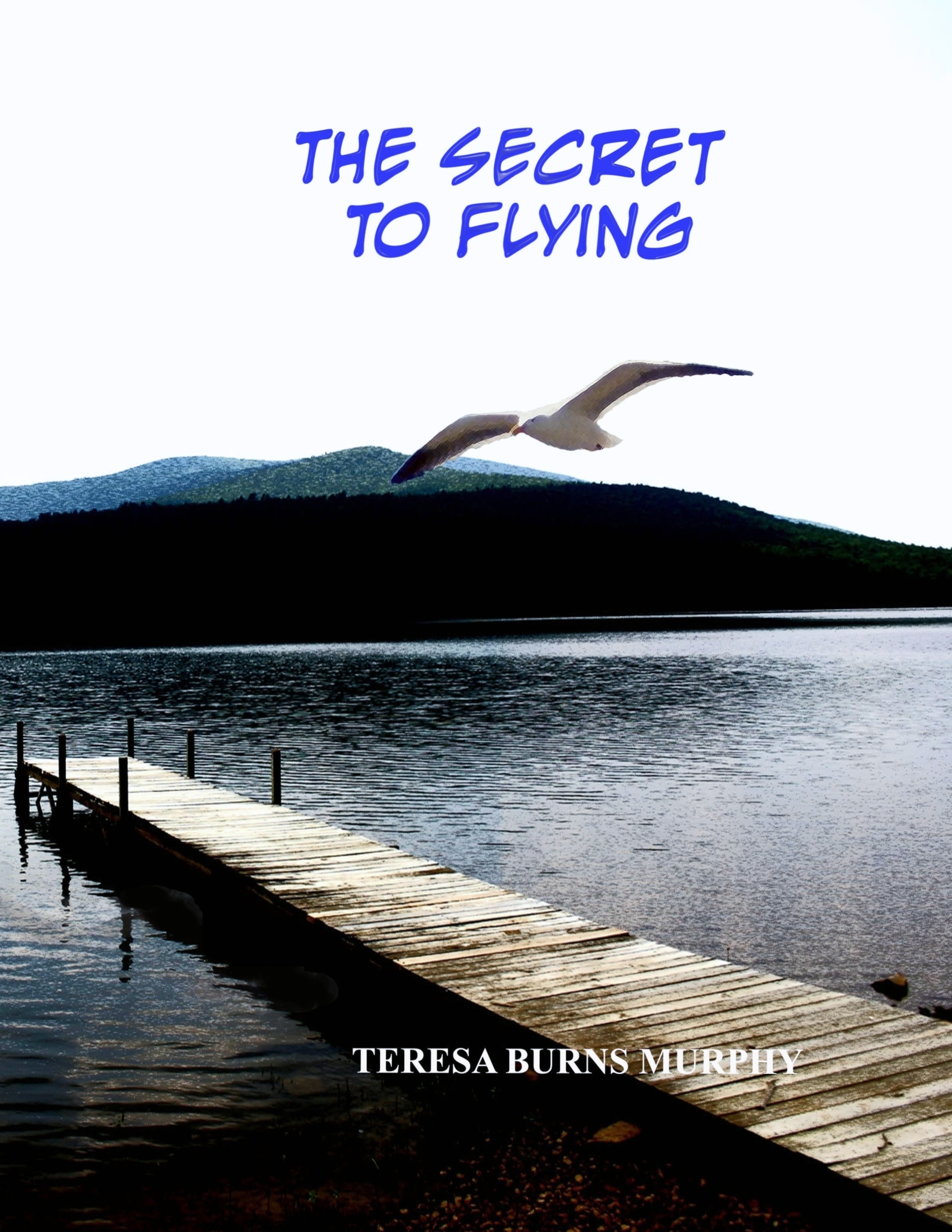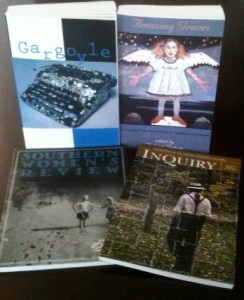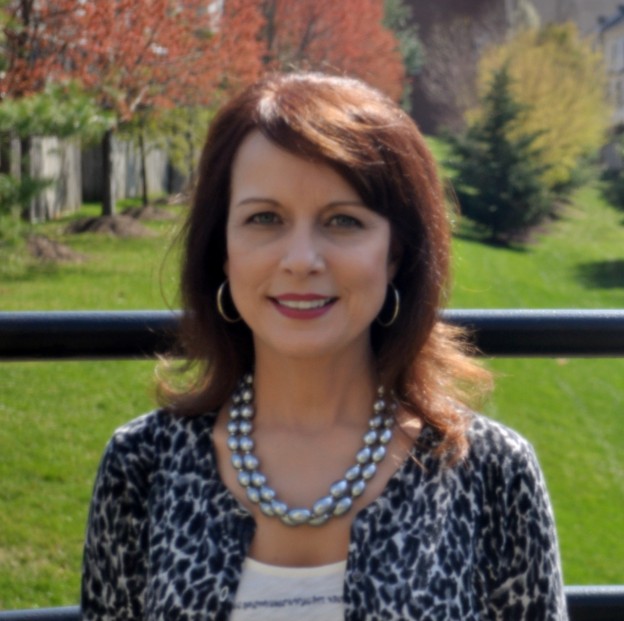 Teresa Burns Murphy is a talented writer and (happily for me) a dear friend. Her debut YA novel, The Secret to Flying, published by TigerEye Publications in 2011, is told from the perspective of an adolescent girl named Donita Tosh and explores the intricacies of the mother-daughter bond. For Donita, growing up poor in a small Arkansas town during the 1980s is difficult enough, but having a mother with a scandalous reputation makes her life practically unbearable. Donita’s mother has always told her the secret to overcoming obstacles is to release everything that weighs her down. Yet her mother’s association with a succession of unscrupulous men is a weight Donita can’t quite shake. When her mother refuses to divulge the whereabouts of Donita’s father, Donita begins to believe the malicious gossip circulating about her mother. Once Donita learns the truth about her father, she is stunned by her mother’s resilience in the face of crushing adversity.
Teresa Burns Murphy is a talented writer and (happily for me) a dear friend. Her debut YA novel, The Secret to Flying, published by TigerEye Publications in 2011, is told from the perspective of an adolescent girl named Donita Tosh and explores the intricacies of the mother-daughter bond. For Donita, growing up poor in a small Arkansas town during the 1980s is difficult enough, but having a mother with a scandalous reputation makes her life practically unbearable. Donita’s mother has always told her the secret to overcoming obstacles is to release everything that weighs her down. Yet her mother’s association with a succession of unscrupulous men is a weight Donita can’t quite shake. When her mother refuses to divulge the whereabouts of Donita’s father, Donita begins to believe the malicious gossip circulating about her mother. Once Donita learns the truth about her father, she is stunned by her mother’s resilience in the face of crushing adversity.
Alan Cheuse, book commentator for NPR’s All Things Considered and author of Song of Slaves in the Desert, describes The Secret to Flying as “a distinctive tale that starts with a keen sense of narrative and deep insight into human relations, and just keeps going.” Richard Peabody, prolific writer and editor of Gargoyle Magazine, describes the novel as “part Harper Lee, part David Lynch,” adding that “Teresa Burns Murphy juggles a full menu of toxic bells and whistles—shotguns, rape, extortion and more—in her debut novel. Teenage Donita navigates the slaloms of adolescence in small town Arkansas circa 1982. She rattles the bars of her caged life trying to escape while struggling to solve the puzzle that is her mother, find the father she never knew, and come to grips with a tangled web of imperfect love. Donita suffers a few close calls before discovering that forgiveness, more than understanding, is what the heart craves most. Murphy takes us along for the ride and brings us back high on adrenaline and very much alive.” 
Murphy’s writing has appeared in Amazing Graces: Yet Another Collection of Fiction by Washington Area Women (Paycock Press, 2012), Academic Exchange Quarterly, Gargoyle Magazine, Inquiry, Pulse Literary Review, Science Teacher, Southern Women’s Review, THEMA, the Washington Post, and Westview. She won the 1996 WORDS Award for Fiction and was a semi-finalist for the 2005 Peter Taylor Prize for the Novel. Her short story, “Halloween Gifts,” was a finalist for the 2006 Kate Braverman Short Story Prize, and her poem, “Geometry Lesson,” was a finalist for the 2009 Janice Farrell Poetry Prize. Originally from Arkansas, she currently lives in a suburb of Washington, D.C.
 HUERGO: What inspires you to write?
HUERGO: What inspires you to write?
BURNS MURPHY: I am inspired by people and their stories. Everybody has a story. I grew up in a culture where storytelling was as natural as breathing. I listened to family stories, work stories, Bible stories, and survival stories. The potential for drama lurked in each facet of everyday life. Later, I read the works of writers–Tennessee Williams, Flannery O’Connor, and Carson McCullers—whose stories resonated with me.
When I was an MFA student at George Mason University, I had the privilege of studying with a wonderful writer—Richard Bausch. I had read his short story, “What Feels Like the World,” and was so inspired by it. In that story, he does what all good storytellers aspire to do; he delivers each literary element in a way that elicits the maximum emotional impact. By the time readers get to the last word, they know everything they need to know about the characters through the details Bausch has sprinkled through the narrative. Upon absorbing these details, readers feel the protagonist’s pain as he watches someone he loves confront an everyday obstacle that for other people is no big deal, but for her is everything.
HUERGO: How would you describe your drafting and revision process?
BURNS MURPHY: Post-it notes and yellow legal pads are scattered all over my house when I am composing a piece, so I can jot down ideas as they arrive. After I have written a draft, I type it and then I print it out and go over it numerous times, making changes. Often, the story doesn’t work and whole parts of it have to be rewritten. Once that is done, revision begins again. This procedure repeats itself over and over and over again until I have a draft I can present to others to critique. I find drafting extremely energy draining and revision energy producing. Once I have that original blob down on paper, I can begin to shape it. The shaping can go on endlessly, so eventually I either give up on the piece or send it out into the world.
HUERGO: What is the most important theme in your work? Why?
BURNS MURPHY: The most important theme in my work is letting go. The theme is present in almost everything I write. In The Secret to Flying, the main character’s mother tells her she must release everything that weighs her down. Metaphorically, Donita must be able to release the negativity in her life if she is going to be weightless enough to “fly.” In another novel I have written, two characters, a middle school boy and his grandmother, are overweight, and they feel that the extra weight is keeping them from leading the lives they want to lead. So they let go of the weight.
Though I can’t be totally sure why this theme recurs, I have a pretty good idea. When I was growing up, I was always encouraged by older and wiser members of my family to hold on to the positive and release the negative. My mother even sang me the lyrics of the Johnny Mercer song, “Ac-Cent-Tchu-Ate the Positive” a time or two, particularly the lines—“You’ve got to accentuate the positive / Eliminate the negative.” Another reason is more straightforward. I was a chubby kid; and, one day, I decided I didn’t want to be chubby anymore. So, just as some of the characters in my fictional stories have done, I literally let go of that extra weight.
HUERGO: Was there a teacher or mentor who influenced your writing or your career as a writer?
BURNS MURPHY: I have had so many fabulous teachers and mentors—my family members as well as my teachers from elementary school through graduate school. However, one teacher, Susan Richards Shreve, stands out because she did for me what all good mentors do. She put me on a path to get the encouragement I needed to keep writing.
When I completed the thesis for my MFA, which was a novel that eventually became The Secret to Flying, I gave it to Susan. I was so nervous while I waited for her to read it. I remember going to her office at Mason after she told me she had read the manuscript. She is a writer whose work I admire, and she is a very kind and generous person, but she can also be fierce.
When I came into her office, she looked at me with her piercing brown eyes, handed me the manuscript and said, “I love it.”
I was over the moon!
Later, she gave me a list of agents, and I sent the manuscript off to them. Some of them expressed interest in the manuscript, but they ultimately declined it. Through it all, Susan continued to encourage me, but I was a bit disheartened. Then, I saw an ad for the Peter Taylor Prize for the Novel, so I emailed Susan to ask her if I should send my manuscript to them.
Very quickly, she replied with a two-word email, “Submit it!”
Though I didn’t win the Peter Taylor Prize, I was a semi-finalist for it, and the director sent me a very encouraging letter. A few months later, I got a phone call from a man who had published some of Peter Taylor’s work, and he invited me to send him the first few chapters of my novel. Then, he asked for the entire manuscript. He ended up not taking it because his company doesn’t publish young adult novels, but he was very supportive and even gave me the name of another publisher he thought might be interested in the novel. Those experiences kept me going through some pretty lean times.
HUERGO: What advice do you have for writers?
BURNS MURPHY: Keep listening to other people’s stories, all the while observing them for the details that remain unspoken. Keep reading other people’s stories. And, keep writing. Then read the stories you have written out loud to yourself and consider whether or not the characters would have presented themselves in the way that you have presented them. Authenticity is essential to writing stories that stir the emotions of others and leave a lasting impact.
HUERGO: I’m always curious what writers are working on next. Can you share with us your current project?
BURNS MURPHY: In recent months, I have been writing short creative nonfiction pieces for a former student’s gratitude blog. Writers tend not to be the happiest people in the world, and I read that research in neuroscience has indicated that being grateful can help people be happy. I wanted to see if that was true, so I started writing about the people in my life for whom I am most grateful. In that blog post, I wrote about how my mother helped me study for a class with a very difficult teacher when I was a little girl.
My mother was typically a stickler for good grades, but when those C’s began appearing on my report card, she told me to do my best and not worry so much about the grade I got. Even when the C’s dropped to a C- during one grading period, she didn’t reprimand me. “I don’t want to make a D,” I sobbed as I handed her the offending report card. “You won’t,” my mother reassured me. “I’ve got a plan for improving your penmanship.” My mother’s plan was for me to copy her handwriting, five pages each weeknight for the next six weeks. If I completed my work before my favorite television shows came on after the evening news, I could watch them. If not, those Beverly Hillbillies would have to exasperate and outsmart the city folk without me. The cast of Lost in Space would have to escape the villains of the cosmos without this small earthling cheering them on. And worst of all, I would miss the antics of that adorable sheepdog in Please Don’t Eat the Daisies. Desperate to go to places where there were no mean third grade teachers, I filled up those five pages night after night as Chet Huntley and David Brinkley droned on about the escalating war in Vietnam and the rising racial tensions at home. You can find all of Murphy's "My Mother's Emmy Award Winning Moment" at Your Daily Dose of Gratitude
Author Contact: 
http://www.linkedin.com/pub/teresa-burns-murphy/23/956/781
https://twitter.com/teresalmva
Photo Credit:
Margaret Murphy
Necklace by Varda Avnisan
